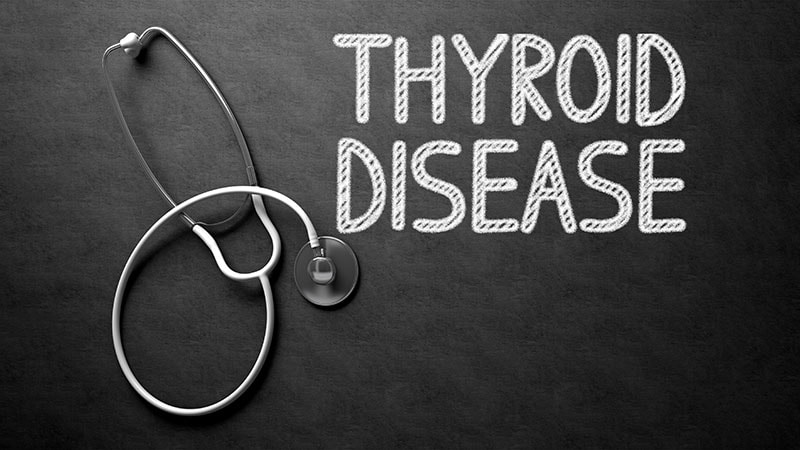Researchers published the study covered in this summary on Research Square as a preprint that has not yet been peer reviewed.
Key Takeaways
-
There was an inverse relationship between blood levels of thyroid-stimulating hormone (TSH) and free thyroxine (FT4) in patients with various types of cancer, as seen in healthy patients, but the normal reference ranges for TSH and FT4 may not be suitable to determine thyroid function in patients with cancer, a new study suggests.
-
The researchers advise clinicians not touse TSH levels to evaluate thyroid function when FT4 is abnormally high in patients with cancer or when FT4 is abnormally low in patients without cancer, due to poor predictability and potential for misdiagnosis.
-
TSH and FT4 levels in patients with cancer still need to be interpreted based on gender and whether the blood sample was taken in the morning or afternoon.
Why This Matters
-
Many patients with a cancer diagnosis present with new or chronic thyroid disease.
-
Patients with prostate, lung, gastrointestinal, and breast cancers may have clinical or subclinical hypothyroidism or hyperthyroidism.
-
However, some cases of abnormal thyroid function may be the result of cancer treatment — for example, tyrosine kinase inhibitors can induce thyroid dysfunction — but on the other hand, underestimating thyroid dysfunction cases may result in unnecessarilyreducing cancer treatment.
-
Appropriate diagnosis and management of thyroid disorders is important for optimal cancer treatment and quality of life.
Study Design
Key Results
-
In the cancer group, blood for TSH and FT4 tests was collected in the morning (7 AM to noon) from 3632 men and 5191 women, and in the afternoon (noon to 7 PM) from 2535 men and 4391 women.
-
In the group without cancer, blood had been collected in the morning from 410 men and 1273 women, and in the afternoon from 320 men and 1094 women.
-
Overall, there was an inverse correlation between TSH and FT4 levels in patients with and without cancer.
-
When comparing the two groups based on FT4 levels (normal or above or below normal), there was a better correlation between TSH and FT4 in the patients without cancer.
Limitations
Disclosures
This is a summary of a preprint research study , “Relationship between TSH and Free Thyroxine in Outpatient Cancer Patient Population,” written by researchers from The Ohio State University College of Medicine, The Ohio State University Wexner Medical Center, and Duke University School of Medicine. Preprints from Research Square are provided to you by Medscape. This study has not yet been peer reviewed. The full text of the study can be found on Research Square.
Credits:
Lead Image: Tashatuvango/Dreamstime
© 2023 WebMD, LLC
Send comments and news tips to news@medscape.net.
Cite this: Thyroid Hormone Reference Range May Not Apply for Cancer Patients - Medscape - Jan 25, 2023.
